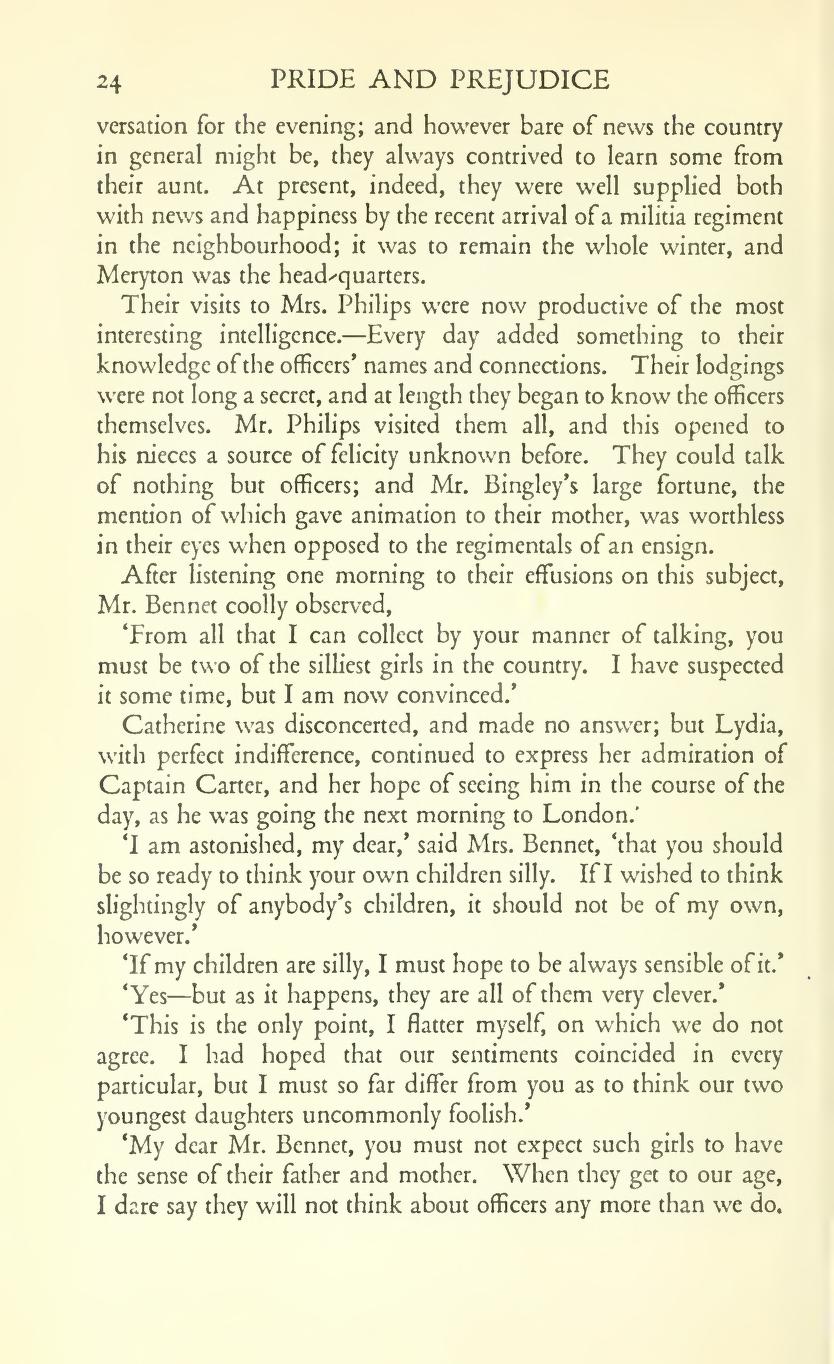 ............prev.....................next
............prev.....................next{{prxprp024.jpg}} || 24 PRIDE AND PREJUDICE ||
versation for the evening; and however bare of news the country
in general might be, they always contrived to learn some from
their aunt. At present, indeed, they were well supplied both
with news and happiness by the recent arrival of a militia regiment
in the neighbourhood; it was to remain the whole winter, and
Meryton was the headquarters.
Their visits to Mrs. Philips were now productive of the most
interesting intelligence. -- Every day added something to their
knowledge of the officers' names and connections. Their lodgings
were not long a secret, and at length they began to know the officers
themselves. Mr. Philips visited them all, and this opened to
his nieces a source of felicity unknown before. They could talk
of nothing but officers; and Mr. Bingley's large fortune, the
mention of which gave animation to their mother, was worthless
in their eyes when opposed to the regimentals of an ensign.
After listening one morning to their effusions on this subject,
Mr. Bennet coolly observed,
'From all that I can collect by your manner of talking, you
must be two of the silliest girls in the country. I have suspected
it some time, but I am now convinced.'
Catherine was disconcerted, and made no answer; but Lydia,
with perfect indifference, continued to express her admiration of
Captain Carter, and her hope of seeing him in the course of the
day, as he was going the next morning to London.'
'I am astonished, my dear,' said Mrs. Bennet, 'that you should
be so ready to think your own children silly. If I wished to think
slightingly of anybody's children, it should not be of my own,
however.'
'If my children are silly, I must hope to be always sensible of it.'
'Yes -- but as it happens, they are all of them very clever.'
'This is the only point, I flatter myself, on which we do not
agree. I had hoped that our sentiments coincided in every
particular, but I must so far differ from you as to think our two
youngest daughters uncommonly foolish.'
'My dear Mr. Bennet, you must not expect such girls to have
the sense of their father and mother. When they get to our age,
I dare say they will not think about officers any more than we do.
[[024]]